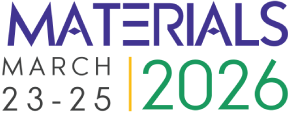Title : Calculation and data-driven strategies for accelerated MOFs design and synthesis
Abstract:
Metal-organic framework (MOF) is a new class of nanoporous material that is widely used in catalytic field due to their large specific surface area, high porosity and tunable pore size. Its excellent chemical tunability provides a wide material space, in which tens of thousands of MOF have been synthesized. However, it is impossible to explore such a vast chemical space through trial-and-error methods, making it difficult to achieve custom design of high-performance MOF for specific applications. Through introducing density functional theory (DFT) calculation and Machine learning (ML) approach, we discovered descriptor-based approach for designing high-performance MOF, and explored optimal synthesis strategies in large chemical space. Through DFT and data techniques (correlation analysis, genetic algorithm, crystal graph convolutional neural network), exploring the correlation between catalytic activity with metal active site composition and local chemical environment. By using the multi-objective optimization approach with a small number of iterations of experiments, providing a methodology for the co-optimization of defects and stability of Ce-MOF, guiding the optimization to improve the existing Pareto frontiers and enabling the optimal design of MOF catalyst with the best overall performance.
Audience Take Away Notes:
- Explain how the audience will be able to use calculation and data-driven strategies in material science
- Give some typical examples for using DFT and data techniques to rational design and intelligent synthesis of MOFs
- Provide guidance for calculation and data-assisted Materials research



